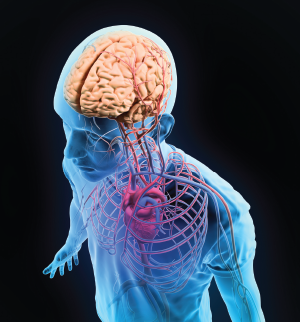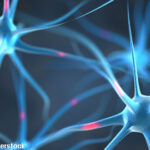
Mopic / shutterstock.com
RETRACTED
Editor’s note: The study this article reported on was retracted by the researchers. Key aspects could not be replicated, and they said, “Most importantly, the findings from behaviour studies and sequencing of microglia isolated from 564Igi autoimmune mice as shown in Figs. 1a, b, d and 3a, b are not substantiated upon further analysis of the original data.”
Insight into the disease mechanisms and cause of brain dysfunction in patients with central nervous system (CNS) lupus suggests a potential new way to treat the common and diverse neuropsychiatric symptoms these patients often exhibit: Target the underlying pathology.
Findings of a new study suggest that type I interferon plays a critical role in stimulating the destruction of neuronal synapses.1 It works through activation of microglia, resident macrophages of the brain, particularly in the hippocampus and frontal cortex regions of the brain. When activated, the microglial cells engulf and destroy neuronal synapses.
“The key finding [of our study] is that interferon alpha from the blood of patients penetrates the brain and activates microglia, leading to synapse loss,” says senior author Michael C. Carroll, PhD, professor of pediatrics and co-director of the Master of Medical Sciences in Immunology Program, Harvard Medical School, and an investigator for the Program in Cellular and Molecular Medicine, Boston Children’s Hospital. This finding opens up the possibility of targeting interferon alpha as a treatment approach for these patients, emphasizes Dr. Carroll, who cites anifrolumab, which is currently in clinical trials, as an example of an antibody that blocks the interferon alpha receptor.
He says preclinical data show the effectiveness of this antibody. “When we treat our lupus mice with a surrogate of the antibody, it shuts off peripheral interferon and prevents microglia activation, synapse loss and the development of neurological symptoms. In my mind, this holds promise as a treatment for patients with lupus and neurological symptoms.”
George C. Tsokos, MD, professor of medicine, Harvard Medical School, chief, Division of Rheumatology, Beth Israel Deaconess Medical School, Boston, agrees. He says that although processes other than the activation of the microglia by interferon alpha may be involved in the development of neuropsychiatric symptoms in lupus patients, the finding of the study strongly supports a closer look at the therapeutic potential of targeting interferon in these patients.
“The study offers a strong rationale to block the receptor for interferon in select patients with neuropsychiatric manifestation,” he says.



